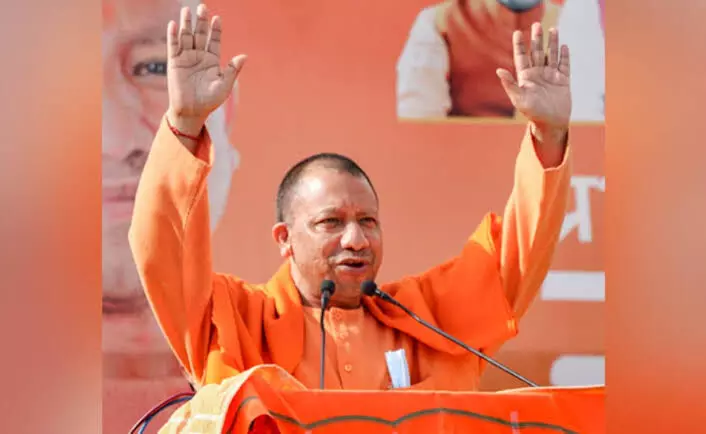
Yogi confident of victory in UP, says '80-20" remark not in context of religion
text_fieldsStating that he was confident that the BJP would be voted back into power with a huge majority, Uttar Pradesh Chief Minister Yogi Adityanath also defended his statement on "80% of the population" being with the BJP and "20%" against it, clarifying that he did not mean in the context of religion or caste but only support for the BJP.
Speaking in an interview with ANI, the CM took up Akhilesh Yadav's claims over Yogi's 80% Hindu strategy, stating that: "It's a reaction to action. I said 80% of people are with BJP and 20% always oppose us and the same will happen this time too. I didn't say it in the context of religion or caste. 80% includes those who are happy with the government's agenda of security & development."
"I am confident after the first phase of the Assembly election. The scenario has become clear that BJP will form the government again in UP with an overwhelming majority. There should not be an iota of doubt about it," he said during the interview.
Attacking the Opposition Samajwadi Party, Adityanath dismissed claims that he ran a "trigger-happy" state and said that in the last five years there had been no major riot or criminal activity as there was under the SP.
He also spoke about the peaceful election in the state unlike what was seen in West Bengal and Kerala during the Assembly polls last year. Harking back to his earlier warnings that UP would become like Kerala if it didn't vote for the BJP, Adityanath said that "hooliganism" had prevailed after elections.
"Barbarism was unleashed on BJP workers in the last Bengal Assembly polls. Booths were captured and hundreds were killed. It all happened in Kerala also. There was a lot of violence and political killings in both these states. Did it happen in UP?"
He also commented on the ongoing hijab controversy in Karnataka, stating that the rule of law would follow the constitution and not Sharia.
"I strongly believe that the system should run as per the Indian Constitution. We cannot impose our personal beliefs, our fundamental rights, our personal likes and dislikes on the country or institutions," he told ANI.
"Am I asking the people and workers in UP to wear saffron? What they want to wear is their choice. But in schools, there should be a dress code. This is the matter of schools and the discipline in schools," he added.
He dismissed Asaduddin Owaisi's remarks on hijab being a fundamental right and said that the Central government had been working towards empowering all women, including Muslim women through the ruling on Triple Talak. When it came to institutions, certain norms should be followed as per the Constitution, he said.






















